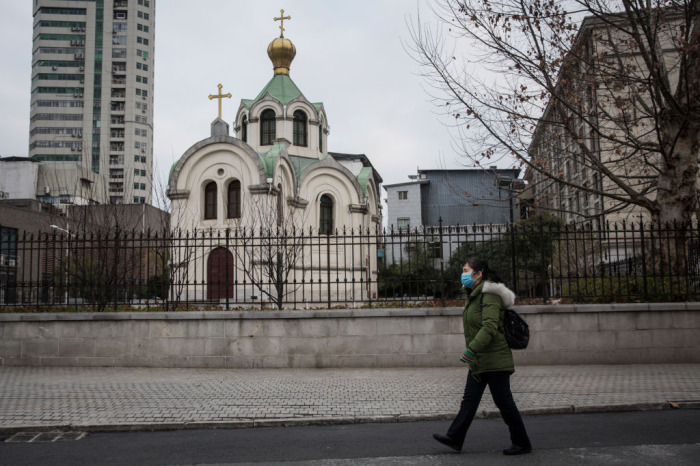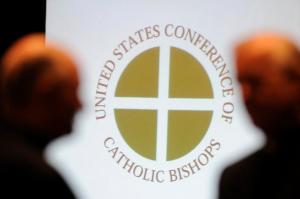China: Crosses 'higher than the national flag' removed from churches amid COVID-19

China’s communist government removed numerous crosses from church rooftops during the country's coronavirus epidemic under the pretext that religious symbolism cannot be “higher” than the national flag.
Religious Liberty Magazine Bitter Winter reported that in mid-March, crosses were removed from multiple churches in the eastern provinces of Jiangsu and Anhui and in the neighboring Shandong, the prefecture-level city of Linyi.
In February, officials removed a cross from a government-approved Three-Self church in Hexi village. The church was built in 2007 and has complied with state regulations, implementing the four requirements of the government’s religion “sinicization” campaign. Additionally, it had stopped all gatherings during the coronavirus epidemic. Nevertheless, it was not spared in the crackdown.
“The government does not provide enough help during the epidemic but instead demolishes crosses,” a local believer told Bitter Winter.
Last December, at the height of the coronavirus epidemic, numerous crosses were removed from Three-Self churches in Hegang, a prefecture-level city in the northeastern province of Heilongjiang.
A member of a church in the city’s Dongshan district told Bitter Winter that a local official threatened to close down the church if the cross was not removed because “it was higher than the national flag.”
Crosses of Christ Gospel Church and Luobei Christian Church in Hegang’s Luobei county were removed the same month using the same pretext. An employee in the county government explained that the crosses “were too eye-catching,” and they would “attract people into the churches.”
In November, government officials ordered the removal of the cross from the Ranfang Church in Gushi county in the central province of Henan, telling believers that it’s “the Communist Party that gives you food and money, not God.”
That same month, the cross of the Ranfang Church in Gushi county was taken down.
A congregation member said that ahead of the demolition, the government summoned the church director for “ideological work,” and officials from neighboring villages were brought in to maintain order.
“How can we, common people, withstand these officials in power?” the believer asked. “We had to restrain our anger and keep silent.”
The outbreak of the virus, which began in Wuhan, China, sickened and killed thousands in the country. Previous reports have revealed how the Chinese communist government continued its campaign against Christianity during the coronavirus outbreak.
While most of the churches across the country were ordered to refrain from physically gathering to help slow the spread of the virus, churches both underground and state-approved were permitted to meet online.
However, in China’s Shandong province, two state-run Christian organizations, the Three-Self Patriotic Movement and China Christian Council released a statement, ordering all online preaching be ceased and churches that gather in secret be rooted out.
Additionally, it ordered officials to “guide” Christians “in other ways, with the caveat of not gathering together!”
China is ranked as one of the worst countries in the world when it comes to persecution of Christians on Open Doors USA’s World Watch List. The organization notes that all churches are perceived as a threat if they become too large, too political or invite foreign guests.
In the past year, Chinese authorities have shut down a number of well-known churches, including Rongguili Church in Guangzhou, Xunsiding Church in Xiamen, and the 5,000-member Early Rain Covenant Church in Chengdu, China.
“A policy of 'sinicizing' the church is becoming increasingly influential because the Communist Party is relying strongly on Chinese cultural identity to stay in power,” says Open Doors. “The new restrictions on internet, social media and NGOs—and the new regulations on religion—are all seriously limiting freedom.”
China has also been labeled by the U.S. State Department as a “country of particular concern” for “continuing to engage in particularly severe violations of religious freedom.”
Pastor Jian Zhu, who was raised in China but now is the director of the China Institute at Lincoln Christian University in Illinois, recently warned that China’s persecution against house churches is now the worst he has seen since 1979.
“The Chinese government now has placed severe restrictions and policies on the house churches, asking neighbors to spy on one another, pressures school teachers and college professors to betray and sign a statement to denounce their faith as well as to do the same to the students,” Zhu said.
“Now, they are trying to eliminate Christianity from public life,” he said. “Cameras are all over to watch church and Christians go to Sunday service. Families are threatened to not go to church or they will be punished or their relatives could be in trouble.”




























